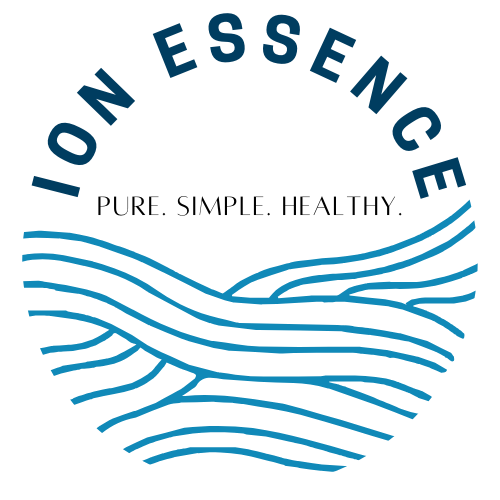Inflammation is the body's natural defense mechanism against injury or infection, involving chemical messengers such as cytokines and histamines that trigger immune responses. However, prolonged or excessive inflammation can lead to various health problems, making effective management essential.
Hydrating the body adequately plays a pivotal role in maintaining overall health and managing inflammation. Ensuring proper water intake helps flush out toxins that can exacerbate inflammation and supports the efficient operation of different physiological processes.
Types of water: Regular tap vs purified vs mineral-rich
Not all water is created equal when it comes to its effectiveness in reducing inflammation.
Regular tap water may contain contaminants that could potentially aggravate inflammation, depending on your locality’s water source and treatment practices.
Purified water, while free from contaminants, often lacks essential minerals that could be beneficial in managing inflammation.
On the other hand, mineral-rich waters, such as those sourced from natural springs, are high in elements like magnesium and potassium which can help reduce inflammatory responses in the body.
The benefits of alkaline water in reducing inflammation
Alkaline water has gained popularity for its potential health benefits, particularly in reducing inflammation. This type of water has a higher pH level compared to regular drinking water. The theory suggests that an alkaline diet, inclusive of higher pH water, contributes to neutralizing excess acidity in the body, which if unchecked, may contribute to increased inflammation, pain, and disease progression.
While empirical research on human subjects remains comprehensive, many proponents report significant relief from symptoms related to chronic inflammatory conditions.
Examining hydrogen water: A modern elixir for inflammation?
Hydrogen water refers to water into which hydrogen gas has been dissolved. Believers in this elixir consider it a robust anti-inflammatory medium due to its claimed antioxidant properties.
These anti-oxidants are thought to selectively neutralize harmful free radicals—unstable molecules that contribute significantly to inflammation and damage in body tissues. Here’s how hydrogen water stands apart:
- Potent antioxidant effects to combat oxidative stress.
- Boosted energy levels, leading to better exercise performance and recovery, indirectly supporting anti-inflammatory effects.
- Increased efficacy in reducing symptoms of diseases rooted in inflammation such as rheumatoid arthritis and metabolic syndrome.
Enhancing your diet for optimal hydration and reduced inflammation
Enhancing hydration isn’t only about increasing your water intake but also involves incorporating hydrating foods and complementary drinks that aid in inflammation reduction. Foods high in water content, such as cucumbers, celery, and watermelon, enhance cellular hydration and offer antioxidants to fight inflammation. Similarly, beverages like green tea or juices rich in vitamin C can add value by bolstering the body’s nutritional arsenal against inflammation.
Here are a few dietary guidelines:
- Increase intake of fruits and vegetables high in water and antioxidants.
- Add natural anti-inflammatory spices like turmeric and ginger to your meals.
- Consider complementing your diet with herbal teas known for their anti-inflammatory properties.
Practical advice for integrating anti-inflammatory water into your daily routine
While considering the types of water beneficial for inflammation management, it is equally important to know how to incorporate them effectively into your lifestyle to maximize benefits:
- Start your day with a glass of room temperature alkaline or hydrogen water to kickstart digestion and metabolism.
- Replace sodas or sugary drinks with mineral or herbal infused waters between meals.
- Ensure consistent hydration throughout the day, not just when you feel thirsty, to maintain optimal bodily functions and detoxification.
Emphasizing these habits ensures that hydration serves as a cornerstone of a holistic approach to controlling inflammation.
Comparing the effectiveness of different types of water
When choosing which type of water might best suit your needs regarding inflammation reduction, it’s advisable to weigh factors like available brands, quality assessments, cost implications, and most importantly, personal health goals. Consulting healthcare providers can provide tailored advice based on individual health statuses and geographical availability of different water sources.
Note: No single type of water will solve all inflammatory issues, but carefully selecting based on individual reactions and benefits observed can lead to improved wellness.

